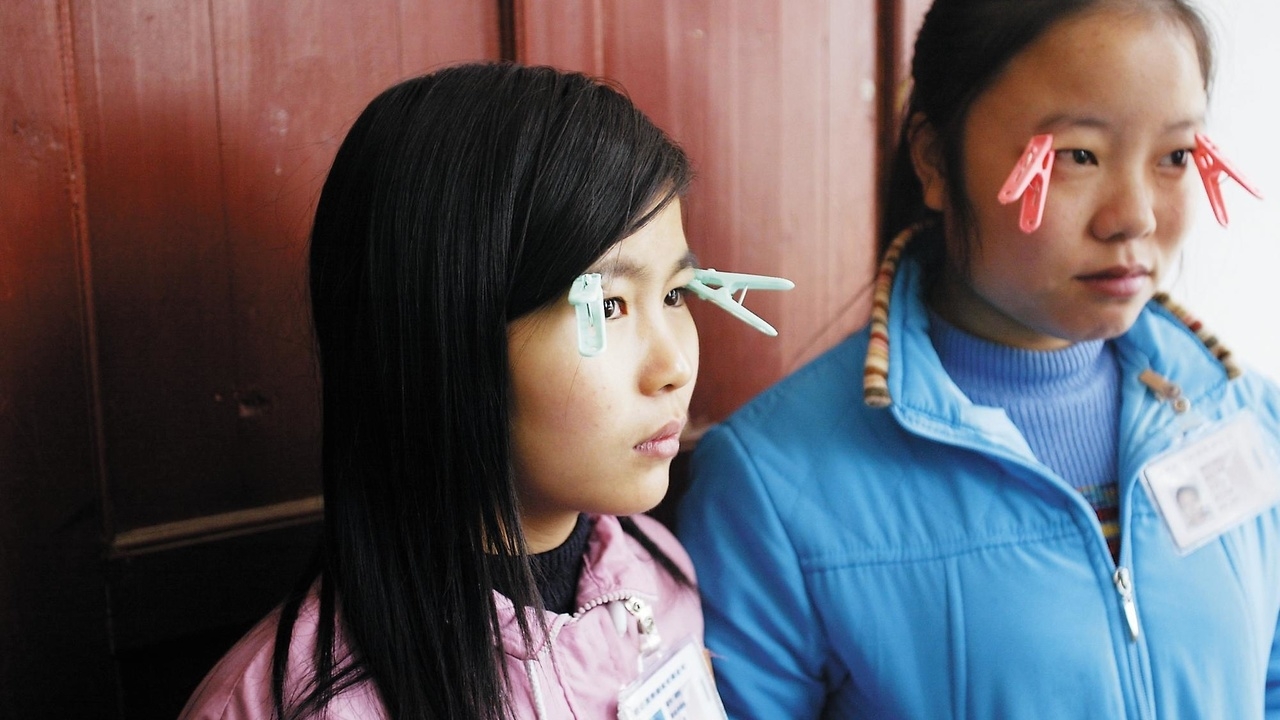By Chlotrudis Independent Film Society
Rating: 3.5 cats
Director: Micha X. Peled

Country: united_states
Year: 2007
Running time: 86
IMDB: http://www.imdb.com/title/tt0478116/
Bruce says: “The subject of CHINA BLUE is the denim industry in China. Less than twenty years ago it was not possible for those living in rural areas to migrate to cities where work in factories was plentiful. The Chinese government was determined to keep the population stabilized. How quickly that philosophy has changed. It is estimated that 130 million people have migrated from rural areas to find work in industry, making it the largest migration in history. China is experiencing an industrial revolution with a cultural impact similar to that in the United States and Europe in the 1870s.
“CHINA BLUE profiles three teenage girls who have left home to find work. Jasmine is the one who we meet before she leaves home. She travels from her family farm in Sichuan Province to seek employment to Shaxi, a town of less than 100,000 on the southern coast. Shaxi is home to dozens of denim factories all of which tend to hire young girls because they are docile and easy to control.
“At the Lifeng factory, Jasmine meets Li Ping and Orchid. The girls live in a factory dormitory, twelve to a room. While that may sound obscenely crowded they spend little time there; when they do get to sleep they usually sleep with their clothes on to combat the cold. A typical work day is from 8am to 7pm. On most days work hours are extended until 2-3am to meet deadlines. Often during the work day a voice on the loud speaker announces that they will be working all night. Sleep deprivation is a problem; many workers fall asleep on the job. Orchid is one of the lucky ones she does specialty sewing and often has less work than the others. Orchid has a boyfriend who works at a nearby factory and they go out to the clubs at night. The girls who work closest to the finishing process – the trimmers, pressers and packers – have the most work dumped on them when the factory is struggling to get shipments out in order not to suffer huge penalties from the retailers such as Wal-Mart.
“Given equal screen time is the owner of the factory, Mr. Lam. The filmmakers had to have the approval of the Chinese government to make the film and Mr. Lam agreed to participate only if the filmmakers also shot a promotional film for his factory. (This fact is not presented in the film but was added in a discussion afterwards.) The Mercedes-driving Lam is the former police chief of the community. He knows how to get things done. Twelve surveillance cameras let management know what’s going on throughout the factory. Workers who get caught sneaking out for energy tea to help stay awake are fined two days pay if they get caught. Other fines are levied for laughing, arguing, sleeping, lateness and failure to meet quotas. Food is deducted from pay and the first paycheck is often withheld to insure that worker stay on the job. Factories have government inspections but management is usually warned in advance, with ample time to cover up injustices.
“Documentaries such as CHINA BLUE give the viewer a snapshot of their subject. Exiting this film one may feel slightly enlightened but decidedly uninformed. However additional information is not necessary to state that forcing young girls to work for days without sleep, then paying only 6¢ an hour is a gross violation of human rights. 3.5 cats”
